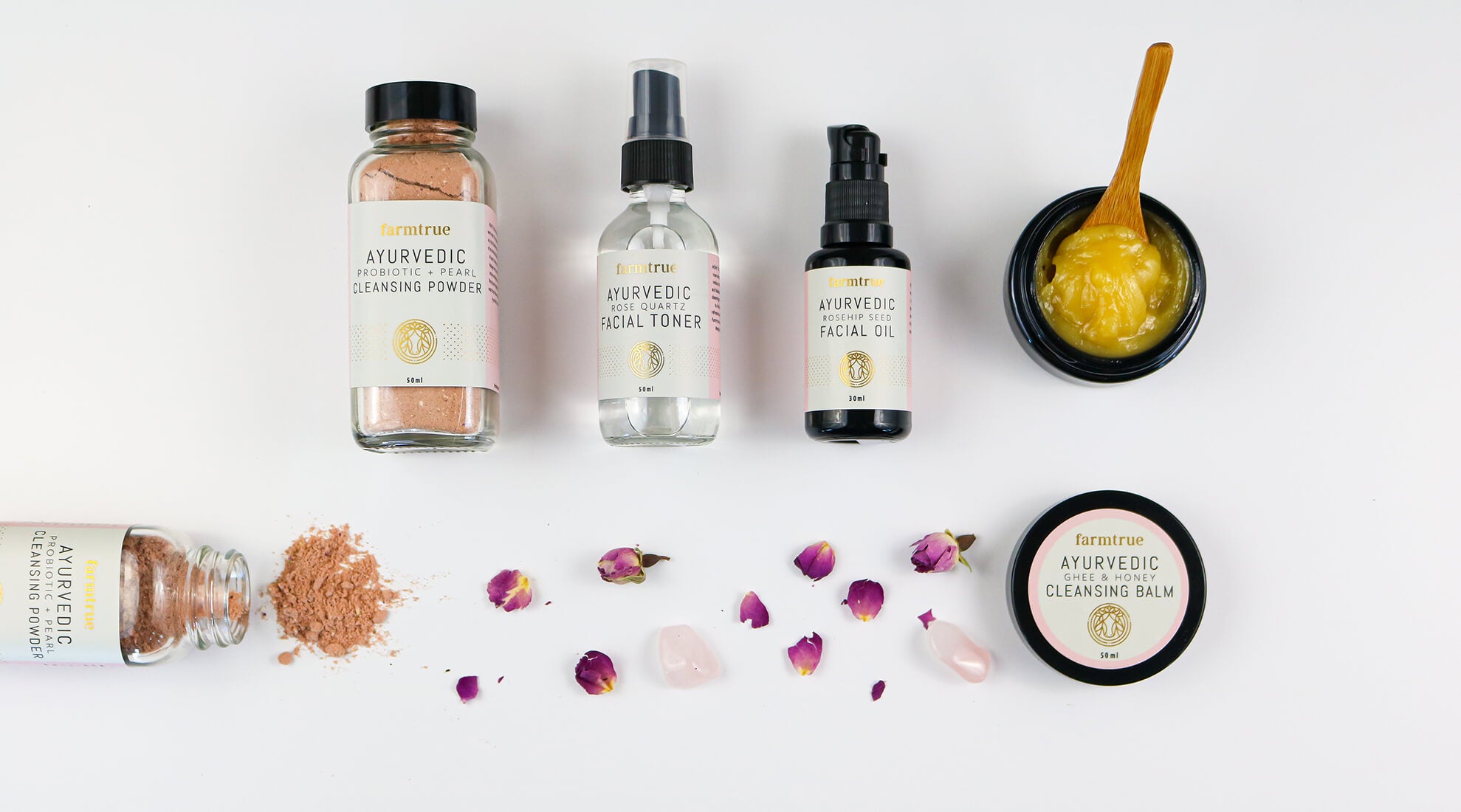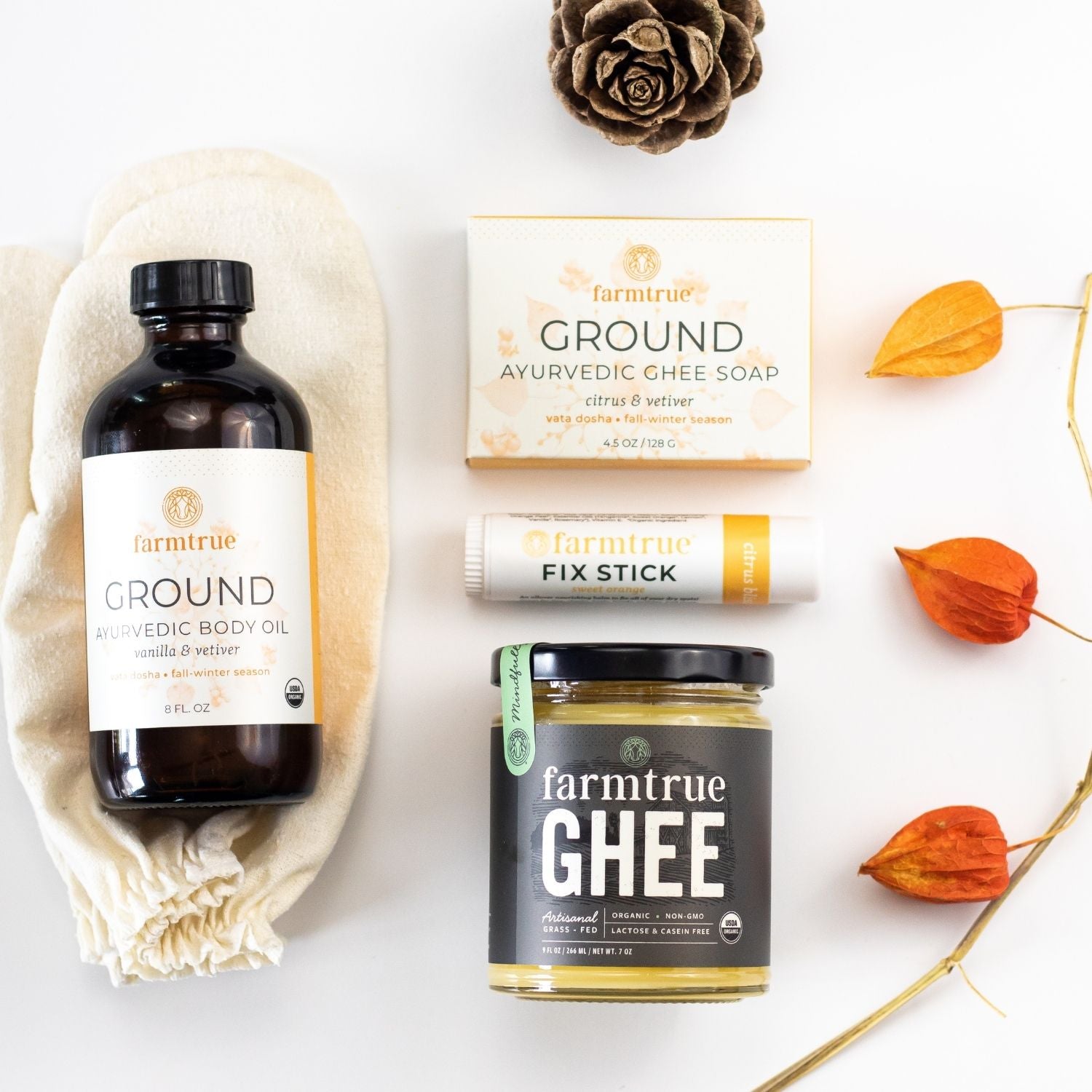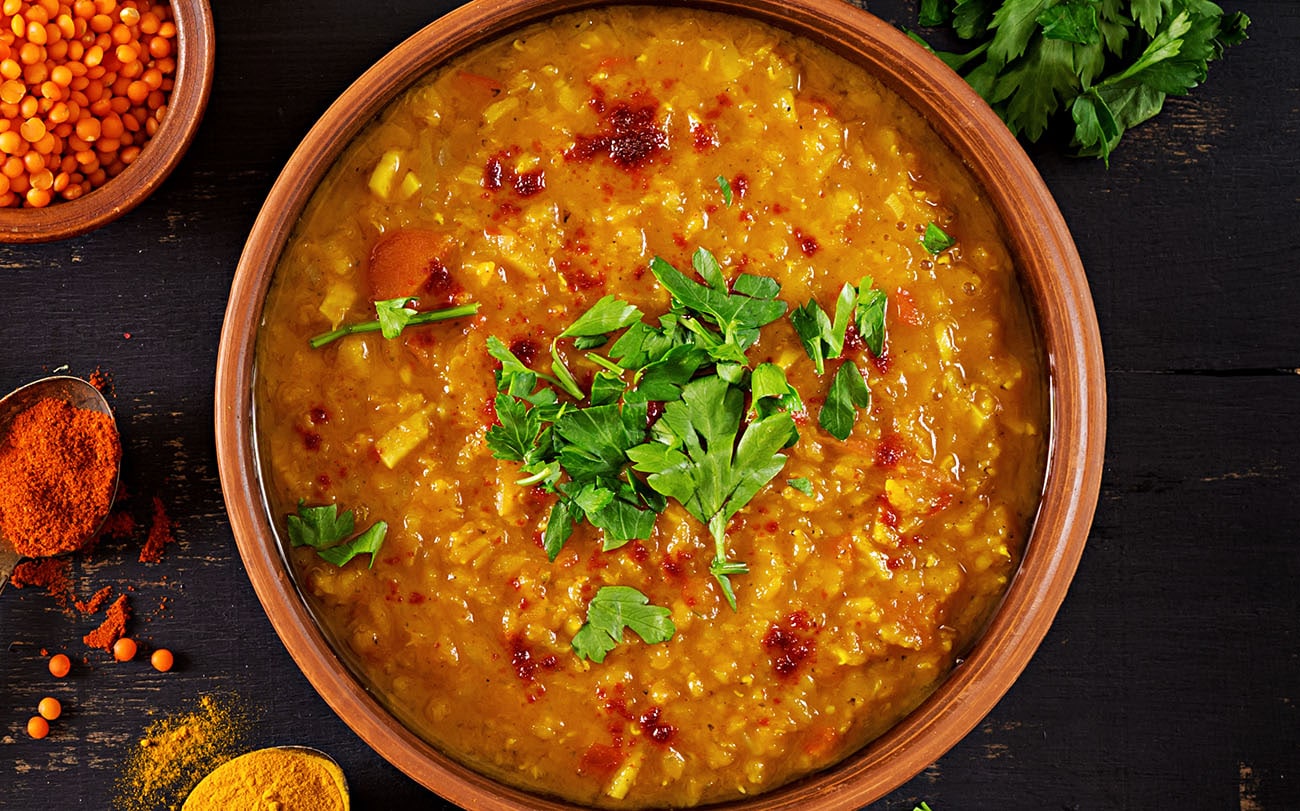
Boost Your Immune System: 9 Natural Foods that can Help || Farmtrue
Immunity and digestion work together to keep you strong
Ayurveda recognizes that a strong immune system is based upon the proper function of and connection between the nervous system and digestive system. This is why the body (gut) and the mind are so closely connected. If our minds are stressed and anxious, our immune system will become suppressed. If we are not eating well and digesting and assimilating nutrients properly, then we are unable to build healthy tissues and eliminate toxins. The foods that strengthen our immune system have the qualities to support healthy digestion and to help the body and mind adapt to stress.
There are many foods that can help to strengthen your immunity during cold and flu season and promote a healthy digestive tract. We’re sharing our favorite 9 Foods that Build and Boost your Immune System Naturally.

—
Ginger
Ginger has been used for thousands of years as a medicinal root with a wide variety of healing properties. It helps to stimulate your digestive fire (Agni) while also supporting your immune system by warming your tissues to burn away thick, heavy congestion, and liquefying mucus. When food sits in our stomachs, it will start to ferment and lead to gas, bloating, and cramping. The enzymes within ginger help to break down the food and stimulate digestion and provide relief without aggravating any more acids. This pungent, full-flavored root is enjoyed in many ways, sweet and savory. Add some fresh ground ginger to your bowl of oatmeal or smoothie in the morning, stir into a soup or sauce, or steep with your favorite tea.
Turmeric

Turmeric has been used in Ayurvedic medicine for thousands of years to help support immune and digestive systems as well as eliminate toxins and benefit your liver and joints. Turmeric contains curcumin which reduces inflammation, therefore leading to boosted immunity. During times of stress or cold and cough season, adding turmeric to your diet can help to balance your systems by kindling your digestive fire (Agni) and supporting the circulatory system. Not only is turmeric beneficial for your body, but your mind as well. It has long been used to help cleanse energies, channels, and chakras.
A bright yellow-orange color, Turmeric can be consumed in so many different ways. In recent years, capsules and gummies have become widely available, but we love to incorporate this Ayurvedic spice in our everyday cooking. Try using it in a Kitchari, golden milk, rice, curries, roasted vegetables, dressings, sauces, eggs, oatmeal – the possibilities are endless.
Ghee
Considered to some (and definitely us!) as Ayurvedic gold, ghee has immense health properties. Packed with fat-soluble vitamins on its own, ghee improves gut health which links directly to your immune system. It has anti-viral properties that can also help guard against germs. It is an immunity-boosting superfood that also features a robust combination of anti-inflammatory and antioxidant benefits which can help your body have an alkaline setting making it extremely difficult for disease to thrive.
Ghee is very versatile. You can enjoy simply stirred into a cup of hot water in the morning to stimulate your digestion or you can add in your morning coffee or tea. Replace your typical cooking oils with ghee in dishes, spread on toast, melt in rice, add to enhance a kitchari, or use it to bake with. We’ve shared some of our favorite recipes here.
Chyawanprash
Chyawanprash has become a staple in an Ayurvedic diet, especially during cold and flu season. This ancient health supplement is made with the Indian gooseberry and cinnamon, ginger, ghee, Cardamom, black pepper, and other medicinal herbs and spices. Chyawanprash helps to bolster immunity as well as the production of white blood cells. Amla (Indian Gooseberry) helps to detoxify the body – blood, liver, spleen, and lungs.
Chyawanprash is eaten in many different ways. People enjoy it spread on toast, stirred into hot water or milk (seed, grain, or nut milk), oatmeal or porridge, smoothies, or simply right off the spoon! We’re going to be trying this recipe from Kripalu for Chyawanprash Cookies. Learn more or purchase Authentic Chyawanprash on our site here.
Elderberry
Elderberries are high in vitamin C and are a well known natural immune booster and symptom-relieving tonic when people experience a cold, cough, or other flu-like symptoms. They have been known to help decrease the severity and length of sickness. Elderberries are also high in dietary fiber making them a great way to ensure your digestive system remains fully functioning.
Elderberries must be consumed cooked, never raw. The syrup is one of the easiest ways to incorporate this Ayurvedic superfood into your everyday diet (we like Elderlane). Mix into a hot or cold beverage, add to your smoothies, oatmeals, or protein bowls, on top of yogurt, or in a tea. Elderberry is also available in capsules, lozenges, and gummies.
Black Pepper
Black pepper is considered an important healing spice in Ayurveda because it’s anti-bacterial, anti-microbial, and full of antioxidant properties. When this warming spice is consumed with other nutrient-rich foods, black pepper can help the body’s ability to fully absorb the nutritional benefits of the foods – vitamins, minerals, etc. – also known as a bioavailability enhancer. It can alleviate nasal and sinus congestion and clear your respiratory tract.
Black pepper can also aid in your digestive process. It promotes the secretion of hydrochloric acid which helps break down your food completely, making it easily passable in your digestive tract. It can also help to ease flatulence and eliminate toxins from your body by increasing the frequency of urination and sweating.
Black pepper can be used on almost any dish and is often found in most pantries. Used as either a simple seasoning to help enhance cooked flavors, black pepper can also be used in teas, tonics, sauces, crusts, or even to add a spicy touch to sweet dishes.
Raw Manuka Honey
In Ayurveda, honey is considered one of nature’s most remarkable gifts. As if being anti-viral, anti-microbial, and anti-bacterial wasn’t enough, it can also be used to boost the immune system to help fight off illness and to improve skin conditions! Honey can be used to lighten heavier foods, helping to support the digestive fire (Agni) as well as balancing your system to soothe digestive discomfort. Manuka honey is a honey derived from the bees that feed on the manuka plant located in New Zealand and has so many nutritional and medicinal benefits that it should have a category all of its own! Manuka Honey typically has a Unique Manuka Factor (UMF) rating on the package and the higher the UMF the higher the antibacterial effects. Try replacing regular honey with Manuka for extra antibacterial properties and always ALWAYS use honey raw! In Ayurveda, it is said that when honey is heated, it becomes extremely difficult to digest which can cause a toxic effect on the body.
Chaga
The Chaga mushroom often resembles a dark, black clump of dirt hanging off a birch tree typically found in the northern hemisphere. Not much to look at from the outside but once cut open, the mushroom is a bright, yellow-orange tissue that provides so much healing. Chaga is so dense in vitamins, minerals, and nutrients (including, but not limited to, B-Complex vitamins, vitamin D, potassium, fiber, copper, zinc, and iron) that this mushroom has long been known as a cure-all for many types of disease and sickness. Chaga can help your body produce white blood cells which are your body’s first line of defense against a cold or flu. Chaga can also help to stimulate the creation and flow of bile, an important fluid for your digestive process.
In recent years, Chaga has become popular as tea, an additive for coffee, or added into sauces, spreads, or other dishes in a powder form.
Tulsi, also known as Holy Basil
Excess stress can lead to a suppressed immune system. As an antioxidant, adaptogenic, and anti-aging herb, Tulsi provides excellent immune system support by helping to soothe the effects of stress on the body, mind, and emotions, so that our systems can function optimally. It is abundant with Vitamin C and zinc, two naturally occurring immunity boosters. It has many anti-bacterial, anti-viral, and anti-fungal properties and increases the activity of the helper cells in your body therefore boosting your immune system. Tulsi is known for its zesty and bitter taste profile and can be used in everyday recipes to add additional flavor or steeped in a tea. Some people like to chew the raw leaves to help flush out toxins and calm their digestive system.




